For this interview we (carla and Nick) sent Marina Sitrin a ‘preamble’ outlining some of the ideas behind our book Joyful Militancy (available here!), and then included a couple questions based on Sitrin’s other writings (especially Horizontalidad: Voces de Poder Popular en Argentina). We do not include the preamble here because as time went on in the researching, interviewing and writing of the book our ideas and articulations shifted. For that, we are deeply indebted to all our interviewees who offered new insights and shed light on areas that needed reworking. Instead we have added a short overview about the book, below, so the interview can stand alone. Our website also includes the book’s introduction and other excerpts.
Joyful Militancy Overview
Why do radical movements and spaces sometimes feel laden with fear, anxiety, suspicion, self-righteousness and competition? In Joyful Militancy, we call this phenomenon rigid radicalism: congealed and toxic ways of relating that have seeped into radical movements, posing as the “correct” way of being radical. In conversation with organizers and intellectuals from a wide variety of currents, we explore how rigid radicalism smuggles itself into radical spaces, and how it is being undone. Rather than proposing ready-made solutions, we amplify the questions that are already being asked among movements. Fusing together movement-based perspectives and contemporary affect theory, Joyful Militancy traces emergent forms of trust, care and responsibility in a wide variety of radical currents today, including indigenous resurgence, anarchism, transformative justice, and youth liberation. Joyful Militancy, by carla bergman and Nick Montgomery, foregrounds forms of life in the cracks of Empire, revealing the ways that fierceness, tenderness, curiosity, and commitment can be intertwined.
#IAS
Between Social Ecology and Deep Ecology: Gary Snyder’s Ecological Philosophy
by Paul Messersmith-Glavin
Gary Snyder is not a philosopher, nor does he “consider himself particularly a ‘Beat.’”[1] Snyder is a poet, an essayist, an outdoorsman and a practitioner of Buddhism. But despite his reluctance to identify with the Beat title, he has been an undeniable influence on the … Read more
Beyond Anti-fascism, But Not Without It, update
Thank you to those who have responded to the Beyond Anti-fascism, But Not Without It statement/call put out by the Perspectives on Anarchist Theory journal collective. Clearly there are many people pursuing this conversation in a variety of networks. Stay tuned for pieces coming from Perspectives on the Institute for Anarchist Studies website and in our 2018 Beyond the Crisis print issue.
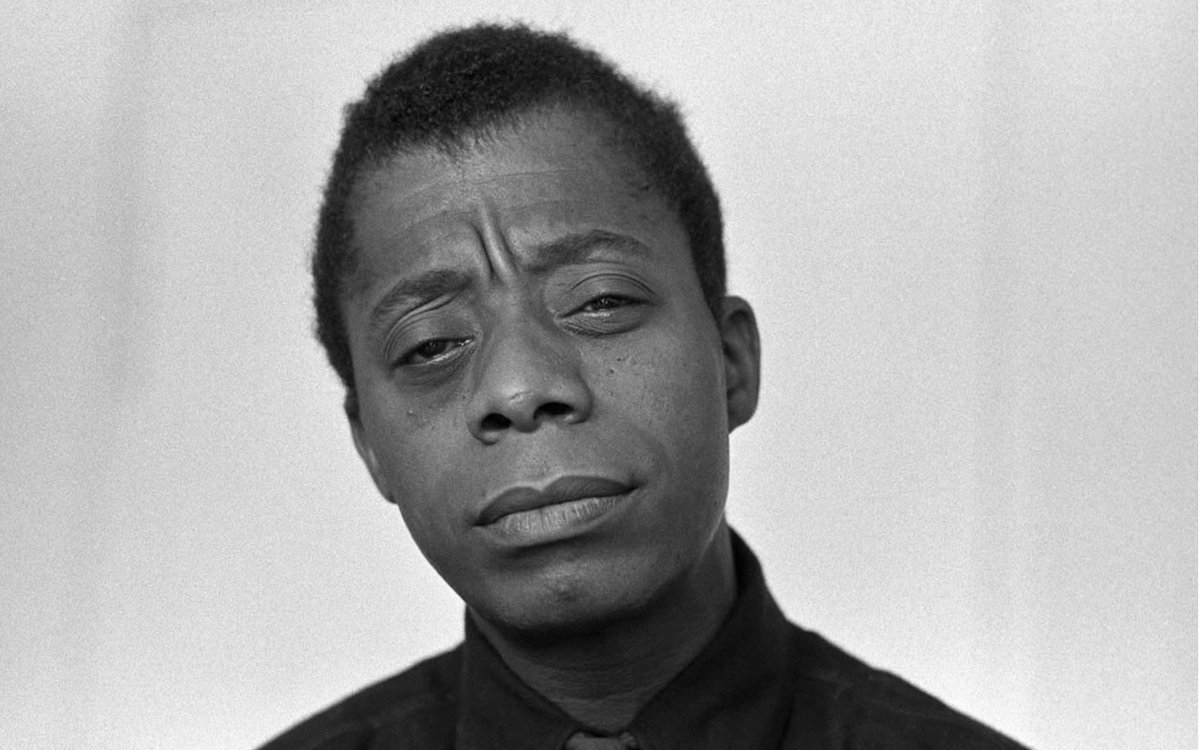
― James Baldwin, The Fire Next Time
Beyond Anti-fascism, But Not Without It
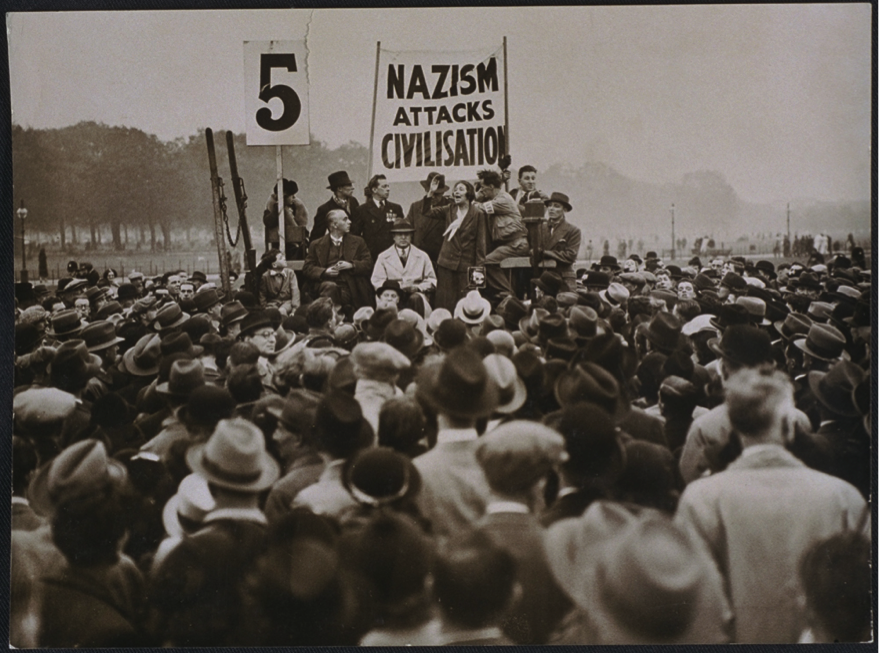
Since Trump’s election, fascism has barged onto center stage, moving more brazenly into public space, mainstream media and public discourse than it has in decades. This renewed and emboldened presence of overt fascism has been met by an explosion of analysis and discussion about its history and politics, and the conditions necessary for its emergence. A proportionally growing attention is also being paid to the history and politics of anti-fascism.
This is welcome, and it is crucially needed. However, it’s also true that the bulk of the writing and speaking on fascism and anti-fascism—the better-selling books, the high-profile interviews–are being done by white men.
Friendship is a Root of Freedom: from Joyful Militancy, by Nick Montgomery & carla bergman
“To become what we need to each other, and to find power in friendship, is to become dangerous.”
—anonymous [1]
“I have a circle of friends and family with whom I am radically vulnerable and trust deeply – we call it coevolution through friendship.”
—adrienne maree brown [2]
“These are not just words; they are clues and prods to earthquakes in kin making that are not limited to Western family apparatuses, heteronormative or not.”
—Donna Haraway [3]
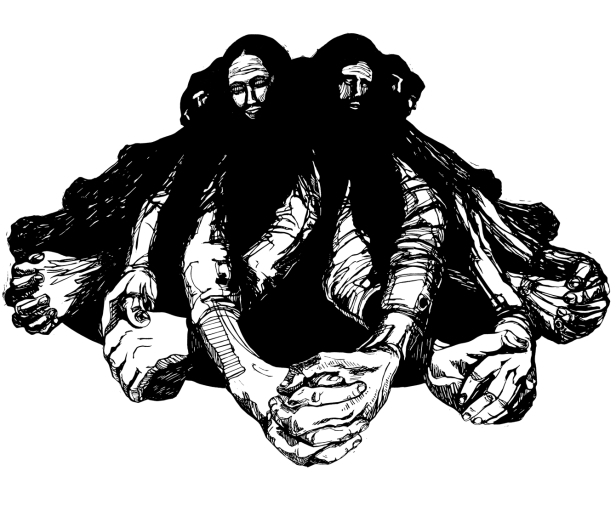
Twenty-Five Theses on Fascism, by Shane Burley
With the growth of the Alt-Right and the Trumpist movement in the US, the Left has grappled with how to understand and define fascism in the 21st century context. The conditions, players, and tactics are fundamentally different than its first manifestations, and so many antiquated … Read more
Joyful Militancy, by Nick Montgomery and carla bergman – a new book coming soon from the Institute for Anarchist Studies and AK Press!
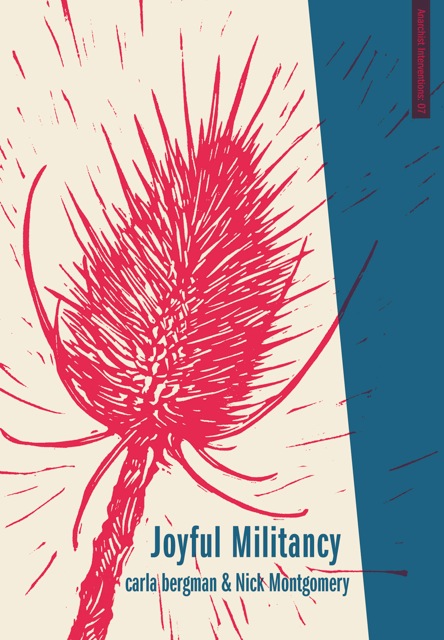
Why do radical movements and spaces sometimes feel laden with fear, anxiety, suspicion, self-righteousness and competition? The authors call this phenomenon rigid radicalism: congealed and toxic ways of relating that have seeped into radical movements, posing as the ‘correct’ way of being radical. In conversation with organizers and intellectuals from a wide variety of currents, the authors explore how rigid radicalism smuggles itself into radical spaces, and how it is being undone. Rather than proposing ready-made solutions, the authors amplify the questions that are already being asked among movements. Fusing together movement-based perspectives and contemporary affect theory, they trace emergent forms of trust, care and responsibility in a wide variety of radical currents today, including indigenous resurgence, anarchism, transformative justice, and youth liberation. Joyful Militancy foregrounds forms of life in the cracks of Empire, revealing the ways that fierceness, tenderness, curiosity, and commitment can be intertwined.
One of our basic premises is that transformative potentials are always already present and emergent. Not only can things be otherwise; they already are, and it is a matter of tuning, tending, activating, connecting, and defending these processes of change that are already in the making. People are always enacting alternatives to the dominant order of things, however small, and there are always new connections and potentials to explore. We see this kind of sensibility happening in currents of feminism, queer theory, Black liberation, Indigenous resurgence, youth liberation, anarchism, autonomism, and radical ecology, among others, and we seek to affirm these movements and practices throughout the book.
“This wonderful book, infused and informed by activist experience, emphasizes the importance of the full range of political affects. Anger and rage rightly, inevitably drive militants, the authors argue, but we must also discover joy and friendship in struggle, which are our highest rewards. The book provides not only an antidote for anyone who has suffered the pitfalls of political activism but also a guide to a fulfilling militant life.”
—Michael Hardt, co-author of Empire, and Assembly
Joyful Militancy features a foreword by Hari Alluri and interviews with Silvia Federici, adrienne maree brown, Marina Sitrin, Gustavo Esteva, Walidah Imarisha, Glen Coulthard, Richard Day, and others. It is the seventh title in the IAS’s Anarchist Interventions book series. Art by Pete Railand and cover and design by Josh MacPhee of Justseeds Artists’ Cooperative
The Seeds of Anti-Capitalist Revolt Found in Everyday Resistance: A Review of Guerrillas of Desire: Notes on Everyday Resistance and Organizing to Make a Revolution Possible by Kevin Van Meter (AK Press, 2017), Review by Scott Campbell

Back when I first began selling my labor for a wage in the wasteland of suburbia’s strip malls, I can recall the tedium of stocking shelves, summoning up insincere courtesy in the face of entitled customers and obnoxious bosses, comparing the stacks of money counted at the end of the day with the totals on our paychecks, and feigning adherence to whatever motivational façade management cooked up to mask the reality of our exploitation.
Yet I also remember, much more vividly and fondly, the latent and occasionally eruptive defiance among my co-workers. This included the constant collective complaining about the job, taking more and longer-than-approved breaks, working as little as possible, fudging time sheets, stealing, and the intermittent screaming matches with the boss in the middle of the store. Underpinning all these actions was an unspoken but broadly understood code of silence when it came to such transgressions and, when appropriate, expressions of support for them.
At the time, I didn’t think much about this, it was just how things happened and I’ve encountered similar experiences to varying degrees in every workplace since. Our actions weren’t guided by a political framework nor was there any attempt to organize them in a directed manner. It was more a spontaneous, innate reaction to experiencing the coercion of capitalism. I had cause to reflect upon this anew while reading Kevin Van Meter’s new book, Guerrillas of Desire: Notes on Everyday Resistance and Organizing to Make a Revolution Possible, published by AK Press and the Institute for Anarchist Studies.
Guerrillas of Desire Book Tour!
Following the release of Octavia’s Brood: Science Fiction Stories from Social Justice Movements, edited by Walidah Imarisha and adrienne maree brown, and Walidah Imarisha’s Angels with Dirty Faces, which won the Oregon Book Award for Creative Nonfiction, the Institute for Anarchist Studies is proud to announce the publication of Kevin Van Meter’s Guerrillas of Desire: Notes on Everyday Resistance and Organizing to Make a Revolution Possible, published in conjunction with AK Press. Join Kevin as he reads from and talks about his book on these upcoming dates!
Perspectives on Anarchist Theory Call for Contributions: Beyond the Crisis
Rapid policy changes, funding shifts and cuts, spikes in hate crimes, inflammatory rhetoric, corrupt democratic processes, and international etiquette blunders characterize the current political situation in the United States. Since the new regime assumed power, the immediate dangers to people of color, immigrants, queer folks, and the poor have escalated. We respond with the urgency of firefighters, racing from hot spot to hot spot, putting out flames where they threaten to consume our communities. We remain on constant high alert to respond to the next hate crime, the next anti-immigrant raid, the next attack on the planet.
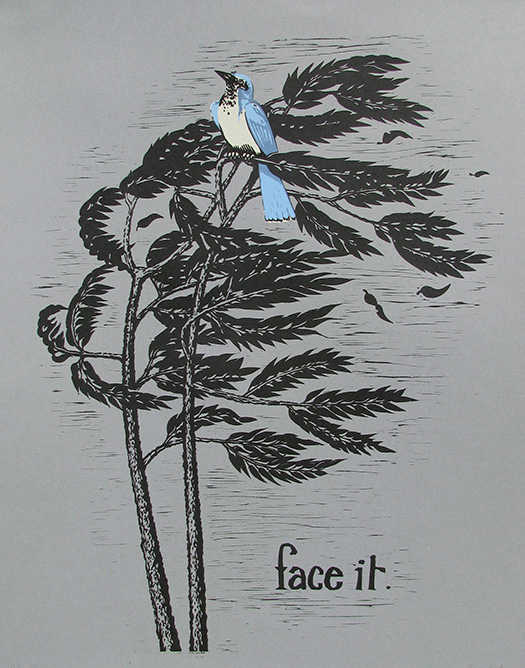
In these moments of urgency, it can feel as if we will never be able to do enough—as if our long-term campaigns are too slow to develop, our reach too short. How do we respond? Does this cycle require us to drop everything in order to react? Must we abandon our own more proactive, visionary agendas, our long-term strategic thinking, our imagining and pre-figuring of alternatives to the existing society? Let us remember that none of this appeared just this year, out of nowhere. Capitalism, war, racism, fascism, xenophobia, misogyny, and other forces of oppression have long been shaping the terrain in which we fight. If we neglect our own aspirations, then we’ve already lost.



